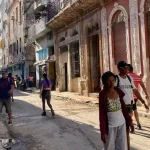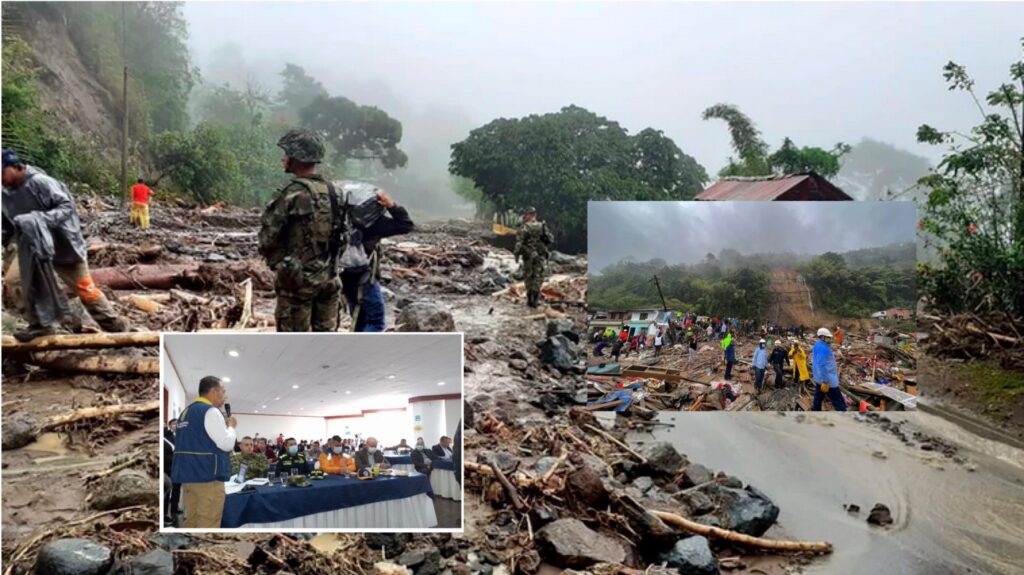
It was last Sunday, through an insert in the newspaper Thirdwhen various politicians and former ministers of the former Concertación expressed their concern about how the constituent process has been developed, affirming that a deficient draft text is being configured, with gaps and problems, also expressing their concern about initiatives “that permanently seek to undermine the independence of the Judiciary”.
Among those who signed said document are politicians close to the Christian Democracy, such as former ministers Enrique Krauss, Ignacio Walker, Jorge Burgos and Jaime Ravinet -the latter two, former DC militants-, in addition to senators Matías Walker and Ximena Rincón, and the conventional former PDP Felipe Harboe. All of them warned about the approval of regulations that they consider to be of poor quality and technical and legal rigor, in discussions marked “by a harsh tone, far from self-criticism.”
The answer was not long in coming, and it was this Tuesday, through a letter published in The counter, signed by 500 lawyers, under the name “Also for Chile”, which includes former State Ministers Ana Lya Uriarte, Laura Albornoz, Alejandra Krauss and Nivia Palma; the prosecutor Ximena Chong and the former dean of the Faculty of Law of the University of Chile, Davor Harasic, among other lawyers and academics.
The letter questions the “vague and general criticism” exposed in the aforementioned insert, assuring that “the serious and serious accusations that they affirm require that they be substantiated before public opinion.” A response to critical views that add to a chain of statements, among them, that of former President Ricardo Lagos, who a few weeks ago expressed his concern, assuring that “we may have a Constitution that is very inadequate for the needs of the country”. Voices detractors to the work of the Convention that had not had a clear and forceful response from sectors linked to the former Coalition, until now.
Through a letter entitled “Thinking of Chile, we say yes to the New Constitution”, 32 politicians and former ministers of concertacionist governments decided to break the silence and publicly support the work that the Constitutional Convention has carried out so far. In addition, they stated their “deepest conviction and strongest will to support the APPROVE option in the Exit Plebiscite dated September 4.”
Among the political figures who signed this document are Alejandra Krauss, a DC militant and former minister in the governments of Ricardo Lagos, and Michelle Bachelet, who is also the daughter of Enrique Krauss, one of the signatories of the other letter mentioned above and who criticized the current constituent process. Other politicians who signed this manifesto are Nicolás Eyzaguirre, Carlos Ominami, Adriana Muñoz, Clarisa Hardy, Osvaldo Andrade, María Soledad Barría, Helia Molina, Carmen Castillo, Adriana Delpiano and Francisco Vidal, among others.
All of them expressed their positive opinion about some aspects of this constituent process, such as citizen participation reflected in the organization of more than 16,000 councils or in the direct participation of more than 800 social and territorial organizations that were part of the various hearings organized by the respective commissions. “In short, more than two million Chilean men and women have participated in this process, in the broadest and most democratic constitutional discussion that has ever existed in our country.”
They also valued the fact that the average vote of the norms approved by the Plenary has been 119 votes, which represents 77% of the members of the constituent body, a percentage higher than the 2/3 required by the Reform. Constitution that regulated the process.
The commitment to “Approval” and future challenges
In the aforementioned letter, its signatories valued the work and the result of the Convention as a whole, where they recognize that there are articles that they like more than others and specific matters that they possibly would have addressed in a different way. However, they consider the fact that the “recognition and guarantee of a substantive set of fundamental rights, including important social rights, has already been approved; as well as the definition that in our country we will have a social and democratic state of law; that our country is constituted as a solidary Republic and that its democracy will be parity”, among other advances.
The document also recognizes the importance of overcoming the 1980 Constitution, “written between four walls in the midst of a brutal dictatorship, with ties and unbearable traps for any authentic democrat.” They bet on a new Magna Carta that – in their opinion – “will have complete procedural legitimacy, moreover, without the locks of the current Constitution that prevent it from being modified. By the way, we understand the new Constitution as an expression of a new social and political agreement of Chilean society, as a starting point, which is open to improvements that will be posed by the changes and challenges of the future”.
In this sense, the socialist militant and former Minister of Planning in the first government of Michelle Bachelet, Clarisa Hardy, maintains that “this is a letter that wants to break the silence of those of us who think that way and that makes it possible to make visible that the essence of the constitutional contents It is already in the approved standards. There are many of us who believe that this country deserves a new Constitution, this new Constitution. And yes, you have to open your mouth and speak out loud, to contrast with those who turn their criticism, legitimate, by the way, into a path without dialogue and, therefore, without destiny”.
Among those who subscribed to this public support for the Approval option, they agree that a letter is not enough and that it is rather symbolic. They add that, from now on, it is appropriate to start an informative and educational campaign, with the aim of disseminating and explaining the approved regulations “and with arguments confronting the fears raised by those voices that represent the path of rejection.”
In addition to the unrestricted support for a new Constitution, another of the matters contained in this document refers to a self-criticism by those who were part of the Concertación governments, in the framework of which they assure that many times they wanted to make substantive changes to the model inherited from the dictatorship, but “the obstructionist attitude of the right prevented it; on other occasions, it was our own hesitations that weakened the necessary will to change”.
In relation to this aspect, María Soledad Barría, a socialist militant and former Minister of Health in Bachelet’s first term, assures that “effectively this also constitutes a self-criticism. We were Government for a long time, where there were things of which we are deeply proud, but there were also great shortcomings that we did not know how to or did not want to improve sufficiently. Today, for example, the lesson that the Boric government is not giving by increasing the minimum wage, I think is the way we should have acted, and that is also related to our self-criticism.”
Regarding the role that the current Government headed by President Gabriel Boric must play, and regarding the difficulties that the current Executive will face to carry out its program, in the letter its signatories maintain that “we want it to do well, despite the harsh internal and external conditions it faces. For Chile, for the people most affected by inequalities and abuses, so that the new Constitution bears all its fruits, we need it to do well”.
The document specifies that “no human process is exempt from obstacles or errors, much less one like the one proposed by the current Government, with its great program of structural reforms. When inequalities exist, there is always someone who benefits from them. When there are abuses, there is always someone who commits them. One and the other will be the main adversaries of this government and, without a doubt, its toughest obstacle. For this reason, the broadest convergence of social and political wills is necessary to give robust support to a government that has set itself such a task”.
Finally, the letter values the fact of incorporating into the cabinet people who come from forces that were not part of President Boric’s original alliance, but they go further and suggest that the possibility of incorporating progressive forces into his cabinet be considered. together and, in this way, begin the process of building a great bloc in favor of social transformations, which, in his opinion, the country needs. They propose a block that adds political experience, to guarantee not only the implementation of the program, but also to face both internal and external attacks, “and that paves the way for future and more ambitious transformations.”

















